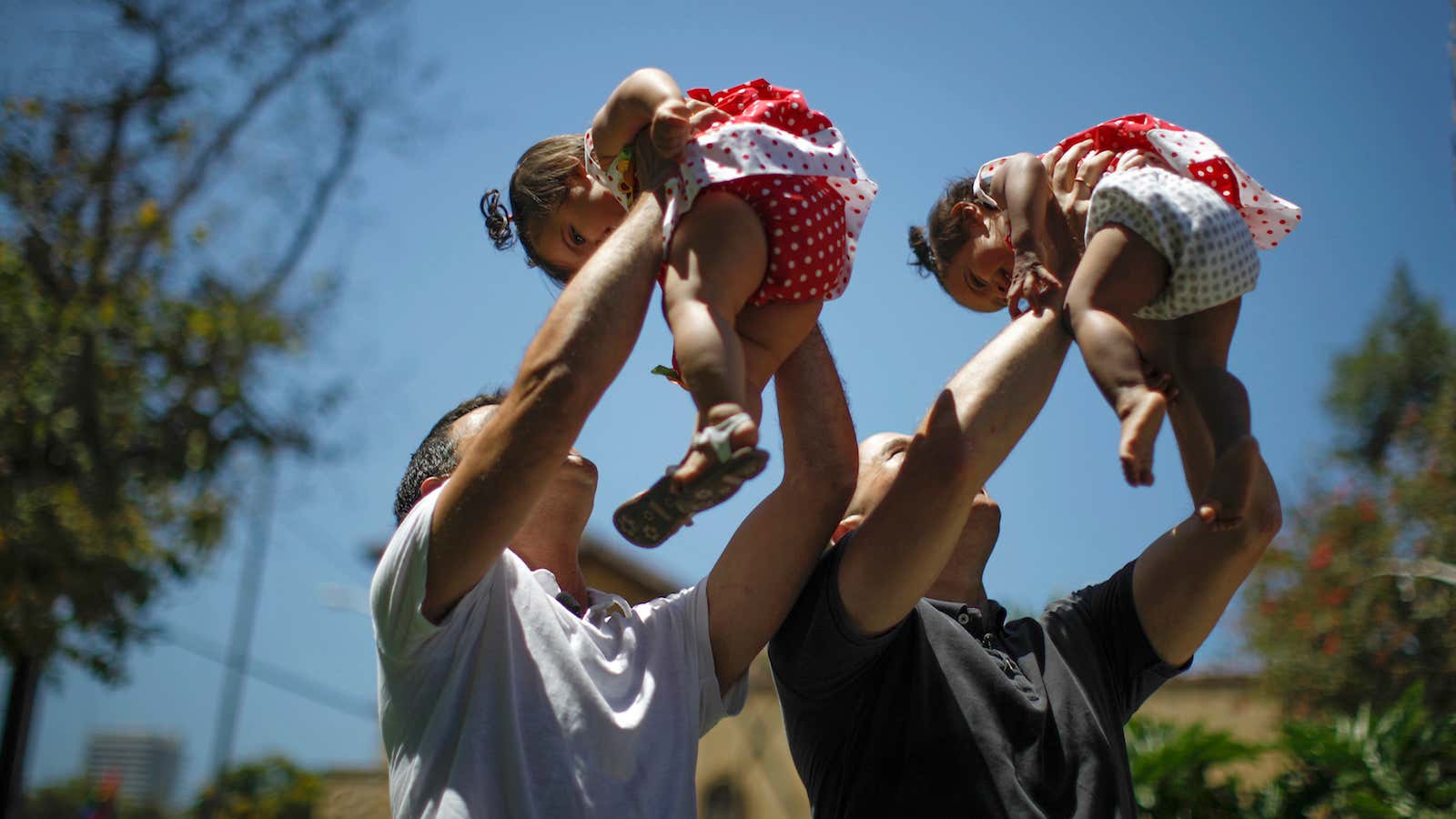Many of us have been called the wrong name by a parent, have confused the names of our closest friends, or, most cringingly, called our new beau by the name of an ex. It’s such a common awkward moment between loved ones that it has become an entertainment trope: Ross calls Emily the wrong name at the altar in a memorable episode of the classic sitcom Friends. In The Goonies, Brand is called his brother Mikey’s name by their mother. The mistake even happens in Harry Potter, with Sirius calling Harry by his father’s name, James.
But while social etiquette dictates we correctly identity the individuals closest to us, errors occur more frequently than we would like. Most people can recall at least one cringe-worthy moment when you wish you could rewind the clock. However, anecdotes are not data. As psychology researchers, we set out to answer a simple question: Why do we so often accidentally call the people we know by the wrong name?
The phenomenon of a person inadvertently calling someone familiar by the wrong name is known as misnaming. In our study (paywall) published last October in the journal Memory and Cognition, we asked over 1,700 people whether they had ever been misnamed or if they had ever committed a misnaming. We then asked what names were incorrectly used and the relationship between the people—or animals—involved. Our results confirmed that these errors are common and committed by people of all ages. (Moreover, misnaming does not appear to be an indicator of aging or of the cognitive decline typically associated with Alzheimer’s disease.)
The most common misnaming reported was a parent, usually the mother, using the wrong sibling’s name. Less common misnaming incidents included children being called the family pet’s name by their parents. Why might this occur? Our results suggest it is not due to people looking alike, nor is it primarily driven by the similarity of the names involved (e.g. calling Mark “Mike”). Misnaming typically occurs within a social group: When family members misname other family members, the incorrect names they most often use are names of other people within the family. The same pattern is observed among friends: Friends usually misname each other using the incorrect name of another friend.
We store information about a person in a mental semantic network that contains information about other related people, places, and things. When we try to remember something, units in our semantic network are activated; when enough units relevant to a concept are activated, the information reaches a threshold, and we remember it. Through a process called “spreading activation,” other information related to a concept may also be activated—this may lead to errors if incorrect information reaches a threshold and is remembered, such as the name of a loved one.
In this mind map, a mother likely associates her children with one another. When attempting to retrieve the name of her son, she is more likely to inadvertently select the name of her daughter than the name of a colleague due to the close connections between her children’s names in her semantic network. In other words, your mom calls you by your sibling’s name because she loves both of you, and associates you with one another.
Perhaps the most surprising finding of our survey was that family members sometimes use their dog’s name, but not any other type of pet’s name, when misnaming family members. This was not because the participants who reported this type of misnaming happen to have owned more dogs: They owned approximately the same number of cats as dogs. One interpretation of this finding is that dogs are a central part of pet-owning families; the family dog is likely stored in the same semantic network as other family members, which suggests that we consider dogs a part of the family, but not cats.
As pack animals, dogs may be more integrated into family units than other domesticated animals. Humans often form unique attachments to dogs, and they are also likely to orally communicate with them. This unique attachment, coupled with the fact that dogs are more responsive to their own names, may explain why humans are more likely to be inadvertently called the name of the family dog rather than the name of other family pets.
So, the next time you call someone you love the wrong name, don’t fret: It’s just a sign that you are lucky enough to have multiple loved ones to keep track of.
Learn how to write for Quartz Ideas. We welcome your comments at [email protected].
Looking for more in-depth coverage from Quartz? Become a member to read our premium content and master your understanding of the global economy.
